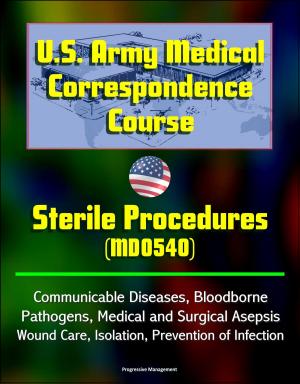National Defense Intelligence College Paper: Intelligence Analysis in Theater Joint Intelligence Centers: An Experiment in Applying Structured Methods - Case Studies, Scenarios, Two-Tailed Tests
Nonfiction, History, Military, Strategy| Author: | Progressive Management | ISBN: | 9781310862380 |
| Publisher: | Progressive Management | Publication: | December 5, 2013 |
| Imprint: | Smashwords Edition | Language: | English |
| Author: | Progressive Management |
| ISBN: | 9781310862380 |
| Publisher: | Progressive Management |
| Publication: | December 5, 2013 |
| Imprint: | Smashwords Edition |
| Language: | English |
This unique and informative paper was produced by the National Intelligence University / National Defense Intelligence College. In clear, articulate, unmistakable language, Master Sergeant Folker's learned thesis sets forth the key opposing arguments in the long-standing controversy over the role of structuring in intelligence analysis. The controversy is largely one-sided, because proponents of intuitive analysis see no purpose in debating the issue, as they are completely satisfied with the status quo. It is only the structuring enthusiasts who see a need for drastic change in the way analysis is conducted. Because, as Folker points out, supporters of the status quo include not only most analysts but most commanders as well, the structuring enthusiasts have never made progress in reforming the other side. And they won't make any progress until the superiority of structured analysis over intuitive analysis is proved, which Folker has taken a first giant step in doing. And it is precisely on this point that Folker challenges the Intelligence Community— indeed the entire U.S. government and the private sector as well—to design and conduct reliable tests to demonstrate which analytic approach is superior: structured or intuitive. Given the wide range of available structuring techniques, each one should be tested in competition with intuition. There are many myths prevalent in the analytic community, public and private, concerning structured analysis: It is time-consuming and overly complicated; it eliminates the indispensable role of intuition; it involves numbers and arcane formulae that render analysis mechanical and devoid of creative solutions; and so on. Tests like Folker's will surely dispose of these myths and demonstrate the immense value and power of structuring.
His thesis, moreover, should encourage students to undertake research experiments that challenge long-held beliefs and test new theories of military interest. JMIC students are especially well placed to conduct thoughtful, creative research because they bring to this scholarly environment a rich mixture of background and viewpoints, and because they remain vitally involved in the business of wringing meaning from a great variety of intelligence information.
Topics and subjects include: qualitative analysis, structured methodologies, case studies, scenarios, two-tailed tests.
This unique and informative paper was produced by the National Intelligence University / National Defense Intelligence College. In clear, articulate, unmistakable language, Master Sergeant Folker's learned thesis sets forth the key opposing arguments in the long-standing controversy over the role of structuring in intelligence analysis. The controversy is largely one-sided, because proponents of intuitive analysis see no purpose in debating the issue, as they are completely satisfied with the status quo. It is only the structuring enthusiasts who see a need for drastic change in the way analysis is conducted. Because, as Folker points out, supporters of the status quo include not only most analysts but most commanders as well, the structuring enthusiasts have never made progress in reforming the other side. And they won't make any progress until the superiority of structured analysis over intuitive analysis is proved, which Folker has taken a first giant step in doing. And it is precisely on this point that Folker challenges the Intelligence Community— indeed the entire U.S. government and the private sector as well—to design and conduct reliable tests to demonstrate which analytic approach is superior: structured or intuitive. Given the wide range of available structuring techniques, each one should be tested in competition with intuition. There are many myths prevalent in the analytic community, public and private, concerning structured analysis: It is time-consuming and overly complicated; it eliminates the indispensable role of intuition; it involves numbers and arcane formulae that render analysis mechanical and devoid of creative solutions; and so on. Tests like Folker's will surely dispose of these myths and demonstrate the immense value and power of structuring.
His thesis, moreover, should encourage students to undertake research experiments that challenge long-held beliefs and test new theories of military interest. JMIC students are especially well placed to conduct thoughtful, creative research because they bring to this scholarly environment a rich mixture of background and viewpoints, and because they remain vitally involved in the business of wringing meaning from a great variety of intelligence information.
Topics and subjects include: qualitative analysis, structured methodologies, case studies, scenarios, two-tailed tests.















